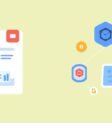
Email Automation AI is rapidly transforming how we approach inbox management and digital communication workflows. By leveraging artificial intelligence, organizations and individuals can streamline daily email tasks, reduce manual workloads, and achieve new levels of personalization and efficiency. In the following sections, we will explore the fundamentals, innovations, business benefits, use cases, tool selection, and key considerations for privacy and ethics within this evolving landscape.
What is Email Automation AI? An Overview
Email Automation AI harnesses artificial intelligence to enhance and optimize email communication. Unlike standard email tools that demand manual attention for sorting, responding, and scheduling, AI-powered solutions utilize machine learning to detect patterns, prioritize important messages, and initiate personalized responses automatically. Common functionalities include automatic sorting and categorization, intelligent spam filters, personalized follow-ups, and audience segmentation for marketing campaigns.
As businesses and individuals increasingly adopt these technologies, AI-driven email systems are minimizing routine workloads and cutting down on human error. This leads to superior productivity, improved organization, and an overall better communication experience. With efficiency and innovation at the core, Email Automation AI is becoming indispensable in the modern digital workflow.
The Rise of Smart AI Agents in Email Automation
Smart AI agents—especially those powered by advanced technologies like GPT—are redefining email management through sophisticated natural language processing (NLP). These agents analyze communication patterns, user intent, and contextual content to deliver highly relevant responses, prioritize emails, and identify optimal sending times. They are capable of sorting through hundreds of emails, distinguishing urgent requests from routine correspondence, and generating accurate replies with minimal human oversight.
Modern automation solutions are further enhanced by features such as automatic language translation, sentiment analysis, and dynamic content generation. By integrating with customer relationship management (CRM) systems and other digital tools, organizations can create seamless workflows that nurture leads and elevate customer engagement. The combination of reduced manual effort, greater scalability, and data-driven consistency allows businesses to expand their email operations while maintaining a personalized touch.
To explore practical smart agent integrations, see our guide on using Zapier with AI Agents.
Key Advantages of AI-Powered Email Automation
Adopting Email Automation AI offers substantial benefits for both organizations and individuals, fundamentally altering communication strategies for the better:
- Reduced Manual Work: Streamlining repetitive tasks such as email creation, scheduling, and follow-up reduces time spent on busywork and lowers the risk of missed communications.
- Enhanced Personalization: AI algorithms analyze user behaviors and preferences, enabling tailored content and subject lines for each recipient. This fosters stronger relationships and improves customer satisfaction.
- Improved Engagement: Automated systems optimize message timing based on data insights, resulting in higher open and response rates.
- Cost Efficiency: Lowered labor requirements and improved conversion rates maximize return on investment, making campaigns more effective and profitable.
For practical strategies and tips to automate repetitive tasks, see our article on automating daily admin tasks with AI.
Business Use Cases Revolutionized by Email Automation AI
Email Automation AI delivers value across a wide array of business processes:
- Lead Nurturing: AI-powered drip campaigns guide prospects through the sales funnel with personalized content, adapting outreach based on recipient activity for higher conversions.
- Automated Appointment Scheduling: By syncing with calendar tools, AI can propose available slots, send invites, and issue reminders, eliminating tedious back-and-forth communications. For more, visit our overview on AI Agents for Appointment Scheduling.
- Customer Support: Common inquiries can be instantly resolved with automated replies, while more complex issues are efficiently escalated to human agents, ensuring rapid and reliable support.
- Re-engagement Campaigns: AI detects subscriber inactivity and delivers tailored messages or offers to rekindle interest and increase customer lifetime value.
- Behavior-Triggered Follow-Ups: Actions like site visits, downloads, or cart abandonment automatically trigger timely, relevant emails that drive conversions.
These scenarios demonstrate how Email Automation AI streamlines operations across sales, marketing, and customer service, helping businesses deliver a higher caliber of personalized communication.
How to Select the Right AI Tools for Email Automation
Choosing the most suitable Email Automation AI solution starts with clearly defining your goals. Consider whether you need segmentation, personalized content, optimized send times, or deep analytics. Ideal solutions offer an intuitive user interface, scalability, AI-driven content suggestions, predictive analytics, and robust integration with your existing systems, such as CRMs and marketing platforms.
When evaluating potential platforms, assess the following:
- AI Capabilities: Ensure the solution uses advanced NLP for content generation and machine learning for audience targeting.
- Integration: Check for easy connectivity with current tools and workflows, enabling seamless data flow and consistency.
- Security and Compliance: Data protection is crucial—look for platforms adhering to GDPR, CCPA, and industry-specific regulations.
- Trial Options: Request demos or utilize trial periods to validate the tool’s usability and fit with your team.
- Support: A knowledgeable support team and active user community can make a significant difference.
Discover real-world examples in our guide to automating workflows with TheAgentBot.
Trust, Privacy, and Ethical Considerations in AI Email Automation
Widespread deployment of Email Automation AI brings trust, privacy, and ethics to the forefront. Paramount among concerns is the responsible handling of user data. Mishandling sensitive information can severely damage trust and expose organizations to legal risks under frameworks like GDPR and CCPA.
Key practices for maintaining privacy and trust include:
- Data Security: Employ robust encryption for emails and stored contact data, and restrict access to authorized personnel only.
- Transparency: Clearly communicate when and how AI is being used, and seek consent for data collection or processing.
- Compliance: Regularly audit data management processes to pinpoint vulnerabilities and ensure regulatory adherence.
- Bias and Fairness: Routinely review AI systems for unintended biases in automated messaging, ensuring ethical standards and equity.
- Clear Policies: Establish transparent data retention and user rights protocols, allowing users to update or remove information as desired.
By prioritizing security, transparency, and ethics, businesses can reduce risk and foster trust in their Email Automation AI efforts. For an in-depth look at this topic, consider reading Harvard Business Review’s article on AI Ethics: What Every Manager Needs to Know.
Conclusion: The Future of Email Automation AI
Email Automation AI is advancing rapidly, reshaping email workflows for both individuals and organizations. By leveraging sophisticated AI agents, automation tools, and ethical best practices, businesses can achieve time savings, personalized engagement, and substantial ROI while maintaining trust and compliance. Staying informed of the latest developments and deploying these tools wisely will be the key to thriving in the AI-powered communication era.






